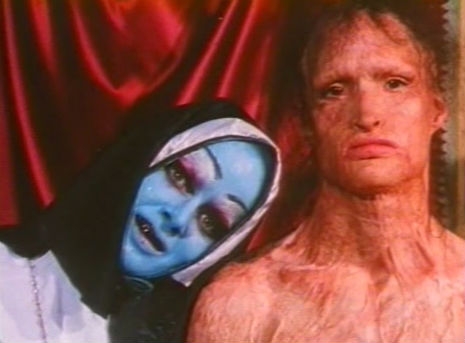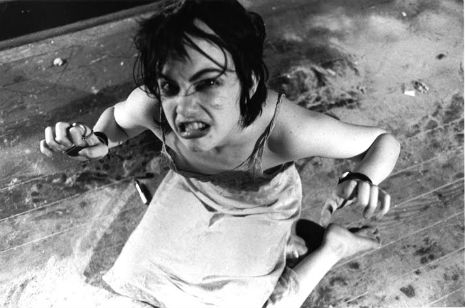
There are times in life when it seems that certain things, events, people or books have been strategically placed for our benefit. For example, I read Nick Zedd’s Totem of the Depraved which ends with the filmmaker homeless, on the streets looking for a place to stay when I was homeless, wandering streets, sleeping rough, and getting by however I could. The book was apposite and Zedd’s words kept me company through some uncomfortable nights. And of course, there was the inspiration, the small luminous epiphany—if artists like Zedd could get by, stay sane, live and create, then so could I.
Self-styled “King of the Underground” Nick Zedd was the pioneer and major player of New York’s Cinema of Transgression in the late 1970s and 1980s with his films They Eat Scum, Geek Maggot Bingo and Police State. Knowing that “History is whoever gets to the typewriter first,” Zedd edited the Xeroxed and stapled together zine The Underground Film Bulletin and wrote (under various aliases) reviews for his own films. In 1985, he composed the Cinema of Transgression Manifesto:
We who have violated the laws, commands and duties of the avant-garde; i.e. to bore, tranquilize and obfuscate through a fluke process dictated by practical convenience stand guilty as charged.
We openly renounce and reject the entrenched academic snobbery which erected a monument to laziness known as structuralism and proceeded to lock out those filmmakers who possesed the vision to see through this charade.
Zedd (writing under the pseudonym Orion Jeriko) described his comrades as “underground invisibles” and named them:
Zedd, Kern, Turner, Klemann, DeLanda, Eros and Mare, and DirectArt Ltd, a new generation of filmmakers daring to rip out of the stifling straight jackets of film theory in a direct attack on every value system known to man.
And announced what they were going to do:
We violate the command and law that we bore audiences to death in rituals of circumlocution and propose to break all the taboos of our age by sinning as much as possible. There will be blood, shame, pain and ecstasy, the likes of which no one has yet imagined. None shall emerge unscathed.
Since there is no afterlife, the only hell is the hell of praying, obeying laws, and debasing yourself before authority figures, the only heaven is the heaven of sin, being rebellious, having fun, fucking, learning new things and breaking as many rules as you can. This act of courage is known as transgression.
We propose transformation through transgression - to convert, transfigure and transmute into a higher plane of existence in order to approach freedom in a world full of unknowing slaves.

Filmmaker and photographer Richard Kern described the Cinema of Transgression as “a loose coalition of people who just joined together in order to have a movement.”
Along with Zedd, Kern was one of the was the group’s main players, making short brutal (some might say “depraved”) films like You Killed Me First (1985), Thrust in Me (1985), The Right Side of My Brain (1985) and Fingered (1986). These films teetered on the wire, and were so personally demanding (mentally and physically and in drink and drugs) that Kern eventually left New York City for a while for the sake of his health.
Artist, writer, actress and performer, Lydia Lunch appeared in many of Kern’s movies and saw the Cinema of Transgression as a way to “show the ugly fucking truth the truth. Period.” Around her were artists like Joe Coleman, who began his career by biting the heads off mice, and became an alchemist—turning pain into gold.
While much of the Cinema of Transgression is now mainstream or like Kern’s photos suitable for the fashion shoot or cat walk, Nick Zedd continues to plow his own visionary path as artist and filmmaker. I, at least, now have a roof over my head.
Angélique Bosio’s documentary Llik Your Idols captures the excitement, thrill and power of the Cinema of Transgression, interviewing Nick Zedd, Richard Kern, Lydia Lunch, Joe Coleman, Sonic Youth’s Thurston Moore and others.